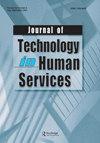Indigenous Perspectives on Using Technology as a Supportive Resource When Experiencing Family Violence
IF 1.5
Q2 SOCIAL WORK
引用次数: 12
Abstract
Abstract Indigenous peoples face substantial barriers when accessing support for family violence. Delivering family violence resources through technological means has the potential to address barriers, but there is insufficient evidence of their acceptability and appropriateness with Indigenous populations. We interviewed 23 Australian Indigenous people to explore the acceptability of technological resources for family violence. Three focus groups then took place to determine the content and look of a potential online resource. Two main themes were developed through a process of thematic analysis. The first main theme, “They won’t feel like they are ever alone” focuses on the practicality and requirements of an online resource and contains three sub-themes. “Even if you’re poor you’ve got a phone”, “There has to be anonymity”, and “Overcoming barriers”. The second main theme “Connected, empowered and strong” is divided into two sub-themes that address the cultural requirements identified as necessary in making an online resource engaging: “A whole of community approach” and “Cultural safety and a healing space”. Indigenous people want co-designed, culturally safe and accessible online resources that provide anonymity, promote connection to culture and facilitate a healing process through drawing on Indigenous knowledge and strengths.在经历家庭暴力时使用技术作为支持资源的土著观点
摘要土著人民在获得对家庭暴力的支持方面面临巨大障碍。通过技术手段提供家庭暴力资源有可能解决障碍,但没有足够的证据表明这些资源在土著人口中的可接受性和适当性。我们采访了23名澳大利亚土著人,探讨技术资源对家庭暴力的可接受性。然后进行了三个焦点小组来确定潜在在线资源的内容和外观。通过专题分析过程提出了两个主要专题。第一个主题,“他们不会觉得自己永远孤独”,关注在线资源的实用性和要求,包含三个子主题。“即使你很穷,你也有一部手机”、“必须匿名”和“克服障碍”。第二个主题“互联、赋权和强大”分为两个子主题,解决了在线资源参与所需的文化要求:“整个社区的方法”和“文化安全和治愈空间”。土著人民希望通过利用土著知识和优势,共同设计、文化安全和可访问的在线资源,提供匿名性,促进与文化的联系,并促进愈合过程。
本文章由计算机程序翻译,如有差异,请以英文原文为准。
求助全文
约1分钟内获得全文
求助全文
来源期刊

JOURNAL OF TECHNOLOGY IN HUMAN SERVICES
SOCIAL WORK-
CiteScore
4.20
自引率
6.70%
发文量
6
期刊介绍:
This peer-reviewed, refereed journal explores the potentials of computer and telecommunications technologies in mental health, developmental disability, welfare, addictions, education, and other human services. The Journal of Technology in Human Services covers the full range of technological applications, including direct service techniques. It not only provides the necessary historical perspectives on the use of computers in the human service field, but it also presents articles that will improve your technology literacy and keep you abreast of state-of-the-art developments.
 求助内容:
求助内容: 应助结果提醒方式:
应助结果提醒方式:


